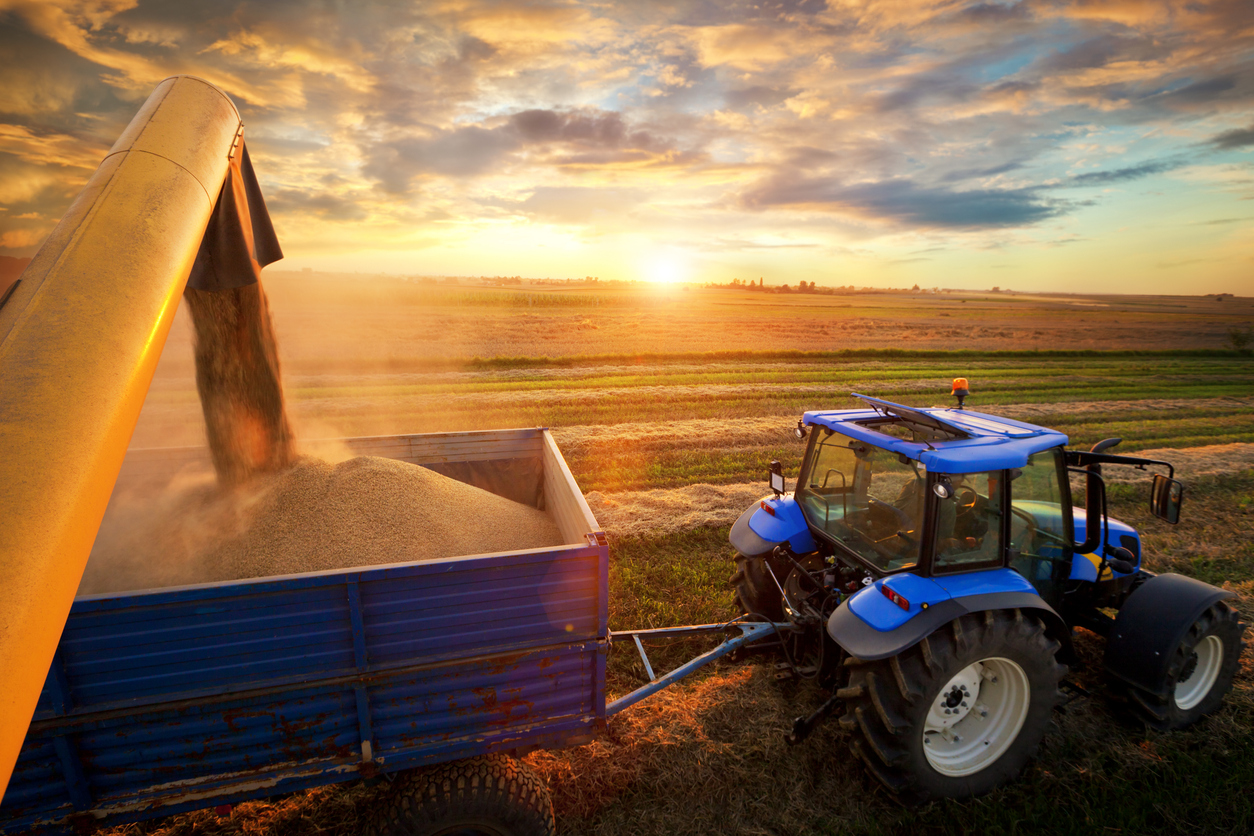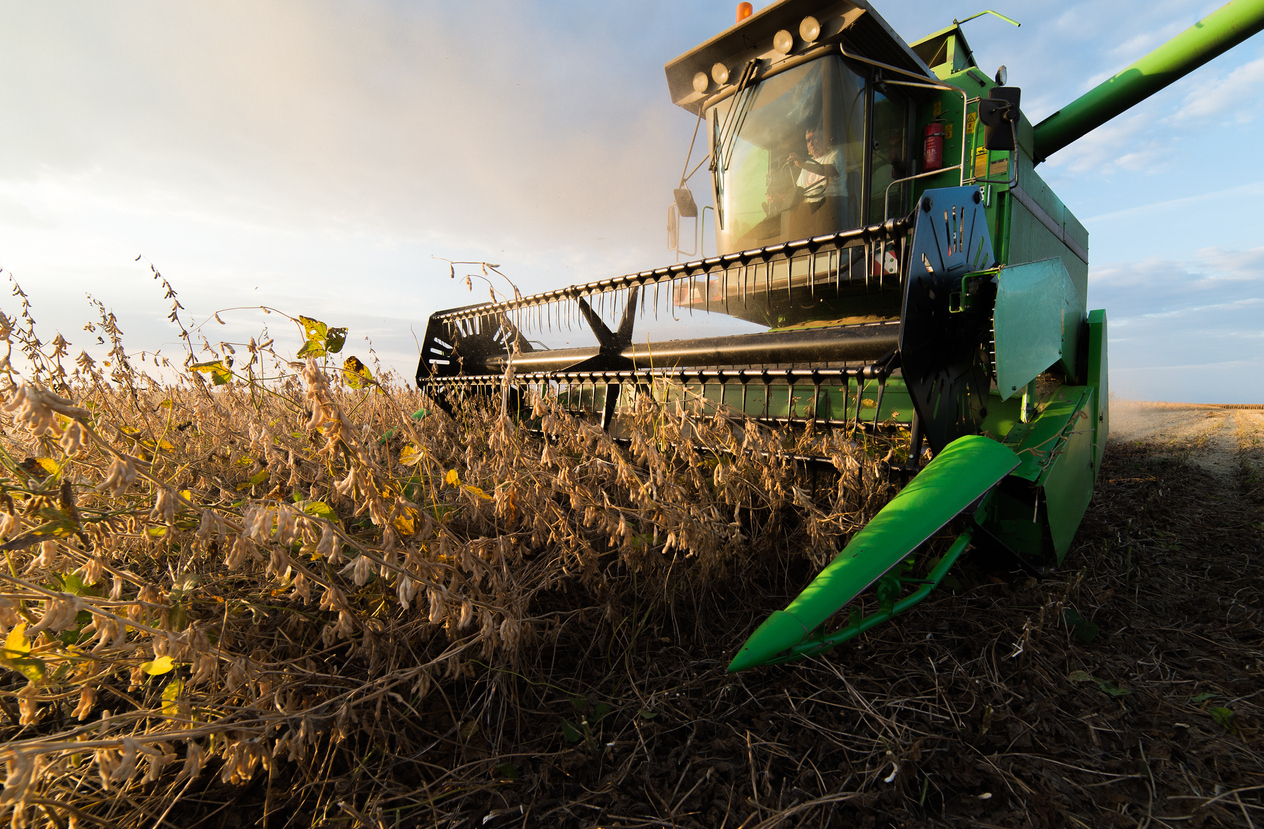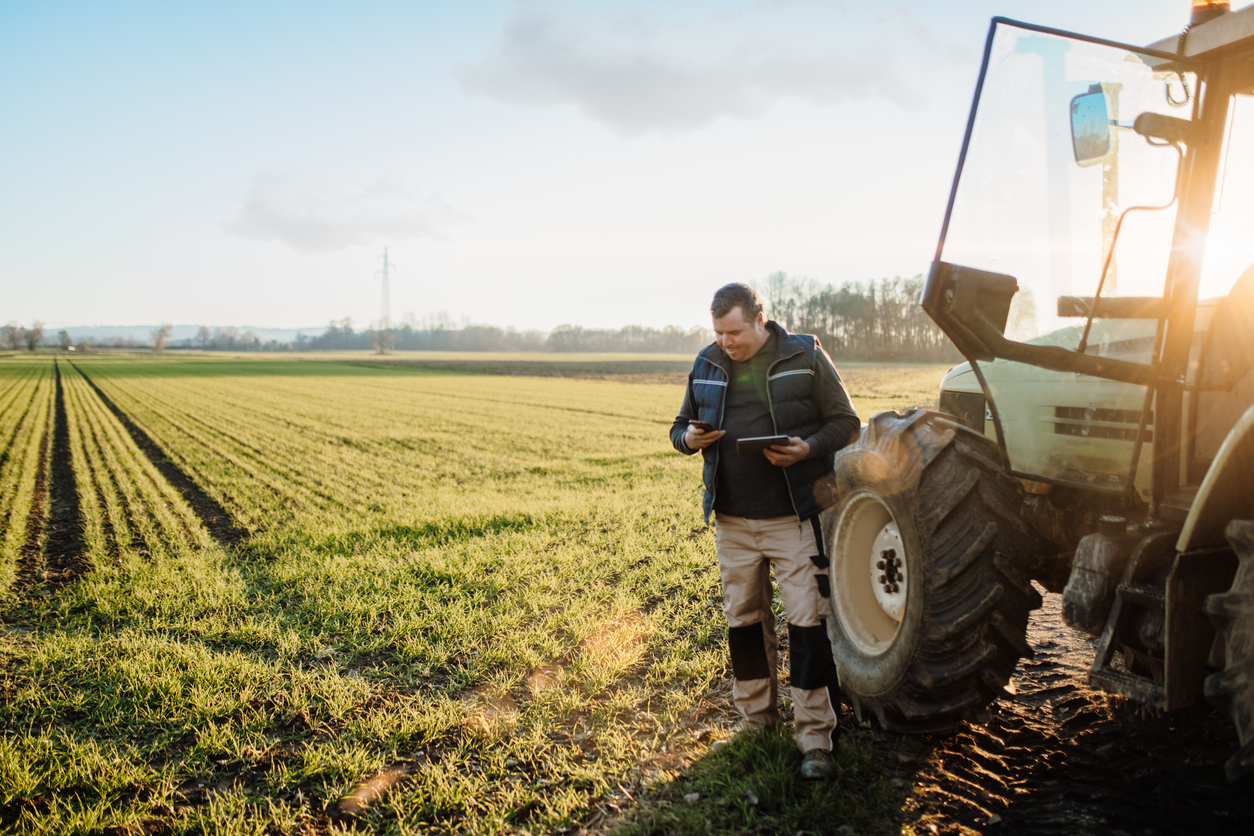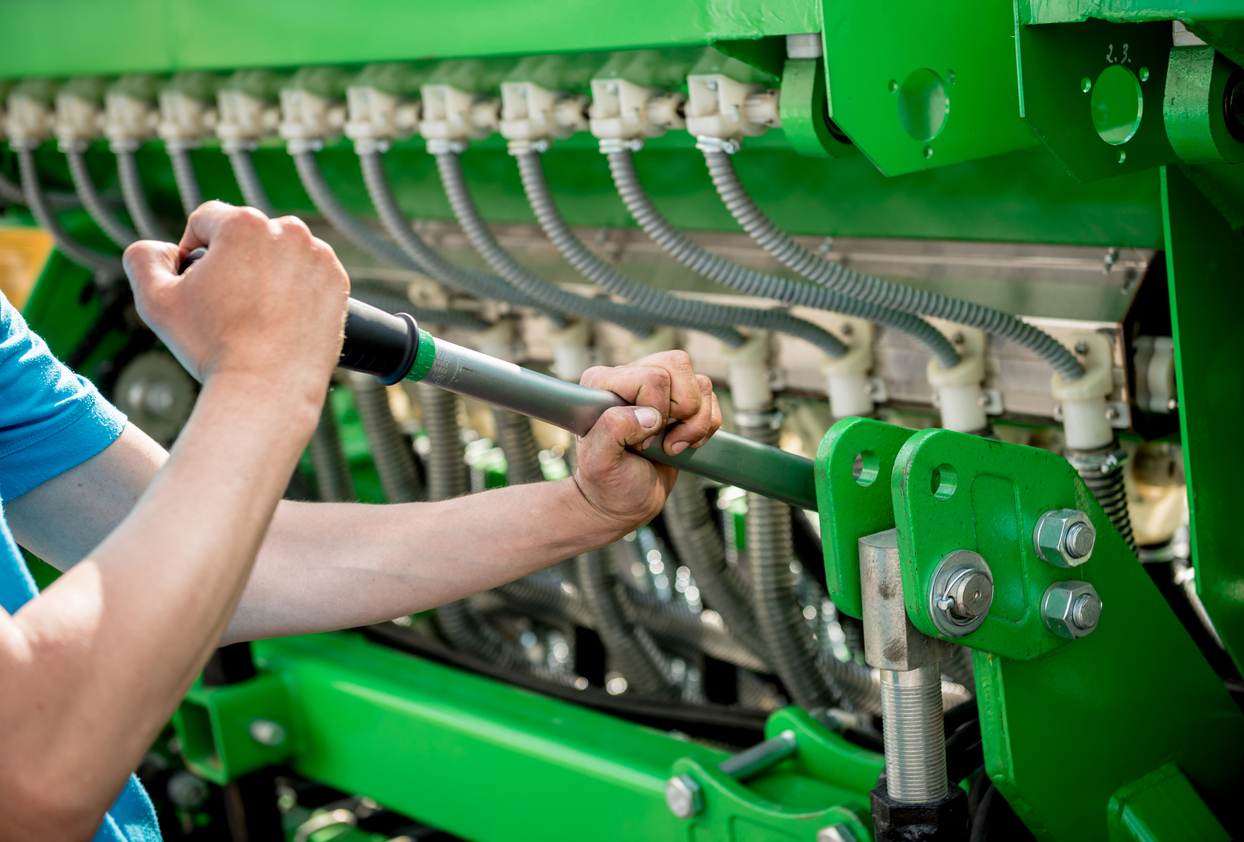May 15, 2024
Farmer's Starter Guide: How Much to Invest in Farm Equipment?

Of course, farming equipment is crucial to every agricultural operation. Proper equipment will enhance your operations with greater efficiency and productivity. Questions arise about how much a farmer should invest in equipment. What type of farming equipment should you choose, new or used? What about maintenance and repair? Are there any state programs available to new farmers? We'll answer these questions and more in our guide for farmers starting out in the agriculture business.
Factors to Consider Before Investing in Farm Equipment
Farms and agricultural businesses have a wide range of needs. The type of equipment will depend on the size of the farm, location, terrain, climate conditions, the type of product being produced, and many other factors. We'll look at the two most important requirements you'll need to have nailed down in order to understand how much to invest in farming equipment.
Size and Scope
You'll need to drill down into specifics. Are you working in a small backyard-type garden or a large-scale commercial operation?
Focus
What is your product? Raising livestock, growing crops, or a combination of the two? What type of livestock? What types of crops? Every type of crop has its own unique needs, which will affect the types of farming equipment you will need.

Budgeting Tips for Farm Equipment
We would be remiss if we didn't mention budgets. Our most favorite financial tool and also the one we avoid most. The fact remains, whether for personal or for a business, a budget is a must. Setting a realistic budget for your farm equipment will involve a complete understanding of all costs involved. For an accurate budget, you can't just put the purchase price and leave it at that. Here are a few strategies to use when setting up your budget for farming equipment.
Assess the Total Cost of Ownership
Include the purchase price, ongoing maintenance, potential repairs, and even depreciation. Estimating these expenses in advance can prevent financial overstretching later on.
Prioritize Your Purchases
Start by investing in farm machinery and equipment that you need immediately to keep your farm operational. As your budget allows, you can gradually acquire additional items that contribute to efficiency but are not urgently needed.
Create a Farm Budget
Use a dedicated farm budgeting tool to outline expected revenues and expenses, including those for farm equipment loans and ag equipment loans. This can help you keep track of cash flow and make informed financial decisions.
Consider Financing Options
Farm equipment lenders like Legacy Ag Credit offer specialized agricultural equipment loans that might come with better terms compared to standard loans. Contact a loan officer today, and we can find the best farm machinery loans, tractor loans, and other farm equipment loans that suit your budget constraints. Sometimes, leasing farm equipment can be more cost-effective than buying it, especially if you need the equipment for a specific season or do not have enough capital for an upfront purchase.

Importance of Matching Equipment to Farm Needs
Choosing the right farm equipment will be critical to your operation's success. Equipment that doesn't align with your farm's specific needs can lead to wasted time and money and even safety. Here are key points to consider when buying or leasing farm equipment.
Assess Your Farm's Specific Needs
Before purchasing any tractors or tractor implements, evaluate what your farm specifically requires. For instance, a smaller tractor might be more suitable for a vineyard compared to a large grain farm.
Efficiency and Productivity
Properly matched equipment, such as the right type of farm tractors or specialized implements, can significantly boost your farm's efficiency and productivity. For example, using a precision seeder on a crop farm can reduce seed waste and increase crop yields.
Avoid Overbuying
It's important not to get swayed by the latest technology or oversized machinery if it doesn't fit your actual needs. Mismatched equipment not only leads to higher fuel and maintenance costs but can also slow down your operations. By carefully selecting the equipment that meets your farm's requirements, you can avoid unnecessary expenses and increase your operation's overall productivity.
Tips for Making Smart Equipment Purchases
When it comes to investing in farm machinery and equipment, doing your homework is important. Keep these four tips in mind for smart purchasing.
- Research Thoroughly
- Evaluate Equipment Quality
- Consider Resale Value
- Negotiate Like a Pro

Long-Term Maintenance and Replacement Considerations
Proper maintenance is crucial for keeping farm equipment up and running efficiently. Regular upkeep not only ensures optimal performance but also extends the lifespan of your machinery. It helps prevent costly breakdowns and downtime, which could impact your farming operations.
Understanding Farm Equipment Loans
Farm equipment loans play a crucial role in helping farmers. Two ways farm equipment loans can benefit you include:
- Preserving Capital
Instead of paying the full amount upfront, equipment loans allow you to spread the cost over time, helping you maintain cash flow for other critical farm operations.
- Spreading Costs
Loans can convert large expenses into manageable monthly payments, making it easier to budget and plan long-term.
Applying for Farm Equipment Loans
Applying for loans is a multi-step process. Start by researching farm equipment lenders who offer competitive rates and terms suited to your needs. Next, prepare the necessary documents, which typically include:
- Proof of farm ownership
- Financial statement
- Detailed plan of how the equipment will benefit your operations
Lenders like Legacy Ag Credit will look at factors such as your credit score, farming experience, and financial stability. We would like to see a solid business plan and a strong ability to repay.
Available Loan Options in Texas
Texas offers several state-specific programs and incentives that can complement the services provided by Farm Credit associations like Legacy Ag Credit. These programs are designed to support the agricultural sector by providing financial assistance, resources, and educational opportunities to farmers and ranchers.
Texas Agricultural Finance Authority (TAFA) programs, a division of the Texas Department of Agriculture, offer various programs to assist individuals and businesses in obtaining capital to improve their farms. These programs include the Young Farmer Interest Rate Reduction Program, the Young Farmer Grant Program, the Agricultural Loan Guarantee, and many other valuable programs. In addition, look at the Texas Farm Service Agency (FSA) and Property Tax Exemptions with the Texas Comptroller for information on agricultural exemptions. Talk with a Legacy Ag Credit team member for valuable information on these and other programs.

Making Informed Investment Decisions
We know how important making informed investment decisions is for long-term success in farming. It is important for farmers to carefully evaluate their farm's needs and their own financial standing before committing to large investments in farming equipment. Team members at any of Legacy Ag Credit branches can help you through the process of obtaining a loan and answer any questions.
Whether you're ready to apply for a loan or just need more information, don't hesitate to contact Legacy Ag Credit. Our team is here to help you make the best choices for your farm and your family’s future.
Farm Equipment Loans FAQs
Q: What would be my best source for equipment financing?
A: The best source for equipment financing can vary based on your specific needs and circumstances, but generally, agricultural credit unions, specialized agricultural lenders like Legacy Ag Credit, and government-backed programs through the Farm Service Agency (FSA) are excellent sources.
Q: How much is the average farmer's equipment worth in total?
A: The total value of a farmer's equipment can vary widely depending on the size and type of the operation and crops grown and location. Small farms might have equipment worth tens of thousands of dollars, while large commercial farms can have machinery and equipment valued in the hundreds of thousands or even millions of dollars.
Q: How do I finance farm equipment?
A: Financing farm equipment is a multi-step process. It is best to speak with a loan officer but can generally involve these steps:
- Evaluate your needs to determine the type and amount of equipment required.
- Look into different financing sources, including agricultural lenders, credit unions, and government programs.
- Prepare necessary documentation such as financial statements, proof of farm income, and a business plan.
- Compare different loan offers in terms of interest rates, repayment terms, and any additional fees.
- Choose the financing option that best suits your budget and needs. Consider whether leasing might be a better option depending on the financial terms and equipment usage.
Q: What is machinery equipment financing?
A: Machinery equipment financing refers to a loan or lease specifically designed to fund the purchase of machinery and equipment needed for operations. It allows businesses to obtain the necessary equipment without paying the full cost upfront, preserving cash flow and working capital. These loans or leases are secured by the equipment itself, often resulting in lower interest rates compared to unsecured loans.
